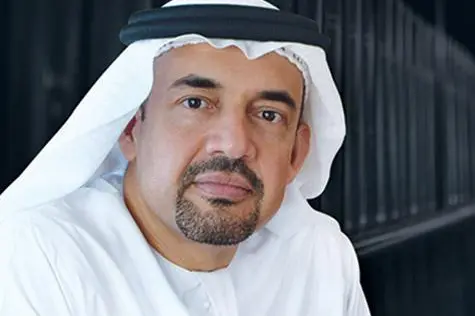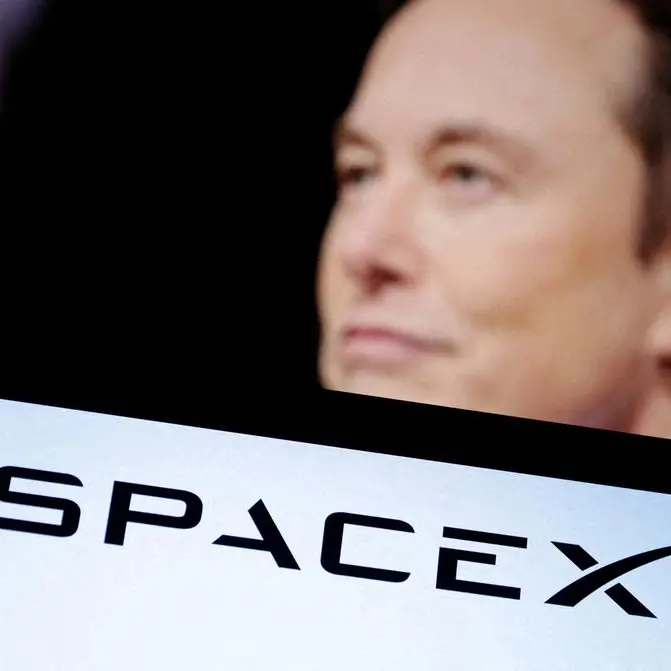PHOTO
Dubai's ambition to become the capital of the global Islamic economy, what are your thoughts?
Dubai has always been a city with grand ambitions and visions. To the extent that we're viewed by others as biting off more than we can chew! But we have continually risen to the challenge. If the leadership gave ear to these comments and remarks ten years ago - we would not be where we are today. If we look at Dubai today; whether it has all the element s of being the capital of the global Islamic economy, I think the answer would be probably not. Is it on the right track -absolutely! The vision is clear, the blueprint has been laid and the supervision of the leadership is obvious. At the same time, there is a realistic timetable everyone is working on, and I believe in a matter of two to three years, Dubai will be able to show the world that it is in fact the capital of the global Islamic economy.
With the vision and leadership in place, do you see the implementation?
In the grand scheme of things, implementation is always the most difficult part. If there is no vision, there is no implementation. The vision and the supervision are the two important elements after which comes the implementation. Judging from what we have seen since the initiative was launched, yes there has been implementation. Can more be done? Of course- but it is not an easy thing to do, particularity because the initiative itself has various pillars, and does not limit itself to Sukuk or the financial aspect of the Islamic economy. In order to cover everything from Halal industries to Shari'ah compliant products and services time is needed. I do think, however, progress has been made and in the right direction. Our 'build it and they will come' ethos has served us well thus far.
Standardizing within the Islamic economy as a whole presents a hurdle, due to differing sects within the faith, as well as the wealth of interpretation within the Islamic community itself. How can lawyers trained in conventional finance engage in the conversation?
My vision, may be different to some of the prevailing theories in what we define as Islamic economics. There are three areas, which in my opinion require a serious renovation. One of these three elements is within the sphere of Islamic banking.
To begin with, the traditional view of conventional banking- what constitutes Riba and what does not needs to be changed. The concept and working definition of Riba was formed almost 1500 years ago, simple and applied to specific transactions that were very straight forward. In the last 1500 years, the economy has changed, transactions became much more complicated; sophisticated even, involving various parties and at the same time.
Economic relations have become more intertwined, and that has removed the element of simplicity and straight forwardness. Whether buying, selling or lending - there are many parties and many different aspects to the transaction involved. If we take a look at conventional banking, which is widely considered as non Islamic - I believe that to be an incorrect definition, simply because there are various aspects to the transactions performed by conventional banks that aren't anywhere near our conventional understanding of Riba. I'm not suggesting that Riba be redefined, but that contemporary financial transactions need to be viewed from a different perspective- rather than 'does
this fit the application of a Riba deal?'
There are of course, different schools of thought when it comes to what constitutes Islamic banking; some schools of thought take a more liberal perspective- even within our local market.
Some of the local banks have taken a view that Tawaruq is a form of an Islamic contract - other banks do not. Looking at the complexity of the transaction and the importance of the banking system to the economy, not neglecting the interdependence between local and international transactions, businesses, economies- we need to approach it from a wider perspective and analyze what really constitutes Islamic banking vs. what defines a conventional bank.
We need to make it easier for the end user, these strict and rigid applications that have prevailed in the last decade need to be revisited... and I think Dubai can play a vital role in this.
Leading a visionary change in the Islamic economy in this aspect by saying yes, we want to have Islamic banking and transactions and different aspects of Shari'ah compliant industries, but we also want to modernize the concept of the Islamic economy. Malaysia has played a vital role by re introducing the modern Sukuk that was over twenty years ago, an innovation of its time, but now Dubai needs to do something just as innovative- that is what spurs growth and in an industry like this. Of course, this doesn't fall under any of the vision's current pillars, but I believe it would be a worthy aspect to examine a lot of things from. Not to mention bringing together Scholars, Economists, Jurists, Lawyers in the form of conferences and academies that would lay down the infrastructure for this change, a sustainable one.
Can conventional and Islamic finance co exist in Dubai without compromising our brand of Islamic Finance?
I believe in survival. If the Islamic economy is appealing; serves and satisfies the users needs whether a consumer or a commercial entity, not only can they co- exist; but they can dominate. Deng Xiaoping famously said 'I don't care if a cat is white or black, as long as it catches mice' Some consumers may still compromise with the quality of service because they want to be adherent to the principles of Islamic banking, and I think that's a choice or a compromise consumers and users should not have to make.
In the long run, if Islamic finance solely depends on the fact that it retains the loyalty of a certain sector of the community- it will eventually fail. Islamic finance and banking need to exist and strive based on the quality of the services and products they offer their customers. That's the way to lead, and in reality, if you take a liberal view, I don't see much of a clash or contradiction between Islamic and conventional banking. Simply put, there needs to be less of a divisive mentality when it comes to conventional and Islamic banking.
As a consumer who happens to have a Legal background, do you see much intersection between Conventional and Islamic products? Is there much jargon being employed to mislead the consumer?
That is an argument many people who are skeptical about Islamic banking use. From a layman's point of view, they may look similar, but at the end of the day - any transaction is defined by certain technicalities, formalities and nuances that change the nature of the transaction. For the different individuals involved in these transactions, there are clear and separate differences involved in the products- I see the products being launched in the market as being fairly straight forward and being presented as they are.
Does the average consumer have the knowhow, or access to reliable sources of information when it comes to their Shari'ah compliant financial choices?
In general, people have a lot of misconceptions and misinformation. There is of course information being provided by the media, as well as governmental institutions such as AWQAF- but for the most part, I think they all tend to repeat the same argument. The argument of what constitutes Islamic finance needs to be brought into the 21st century. As an example, everyone holds the view that commercial banks are all Riba- that is not correct. About 70% of conventional banking transactions are not related to loans- so we have about 30% that perhaps are. These are points that many people ignore or simply don't take into account when they're making decisions related to their finances. Another example is the concept of Tawaruq. Although it's disputed, it's a testament to discourse and an attempt to construct new theories and that's the attitude we need to build on in today's economy.
Not many countries in the region take as liberal stance as Dubai when it comes to compromising to appease both the conventional and Islamic finance sectors. Would others benefit from taking the same position?
I think that the entire world would, and not just our neighbors. That is why, I believe Dubai needs to lead and become the change within the Islamic economy. We are still confined within the traditional concepts of what constitutes Islamic banking, Riba etc. It is not an easy task to introduce or to accept change, especially in an areas as sensitive as this. Dubai can have a global impact and redefine what a working Islamic economy is. This will not happen overnight, but this city lacks neither in ambition or vision- and I believe it can be done.
The whole concept of Tawaruq came hundreds of years ago... yes it is a bit disputed - but the fact that it is disputed means there were attempts hundreds of years ago for people to come with new theories and that's the attitude we need today.
By: Dr Habib Al Mulla
BIO: Dr. Habib Al Mulla has over 29 years' experience in UAE law and has drafted many of Dubai's modern legislative structures. He is chairman of the Dubai International Arbitration Centre's (DIAC) Board of Trustees, and chairman of the Chartered Institute of Arbitrators' UAE committee. Dr. Al Mulla is a frequent commentator on UAE legislation and economy and is often consulted to draft and advise on Federal and Emirate level laws. He created the concept of financial free zones in the UAE and was the architect of the legal framework establishing the Dubai International Financial Centre. He also served as legislative committee chairman of the Dubai Financial Services Authority.
© Business Islamica 2016





















